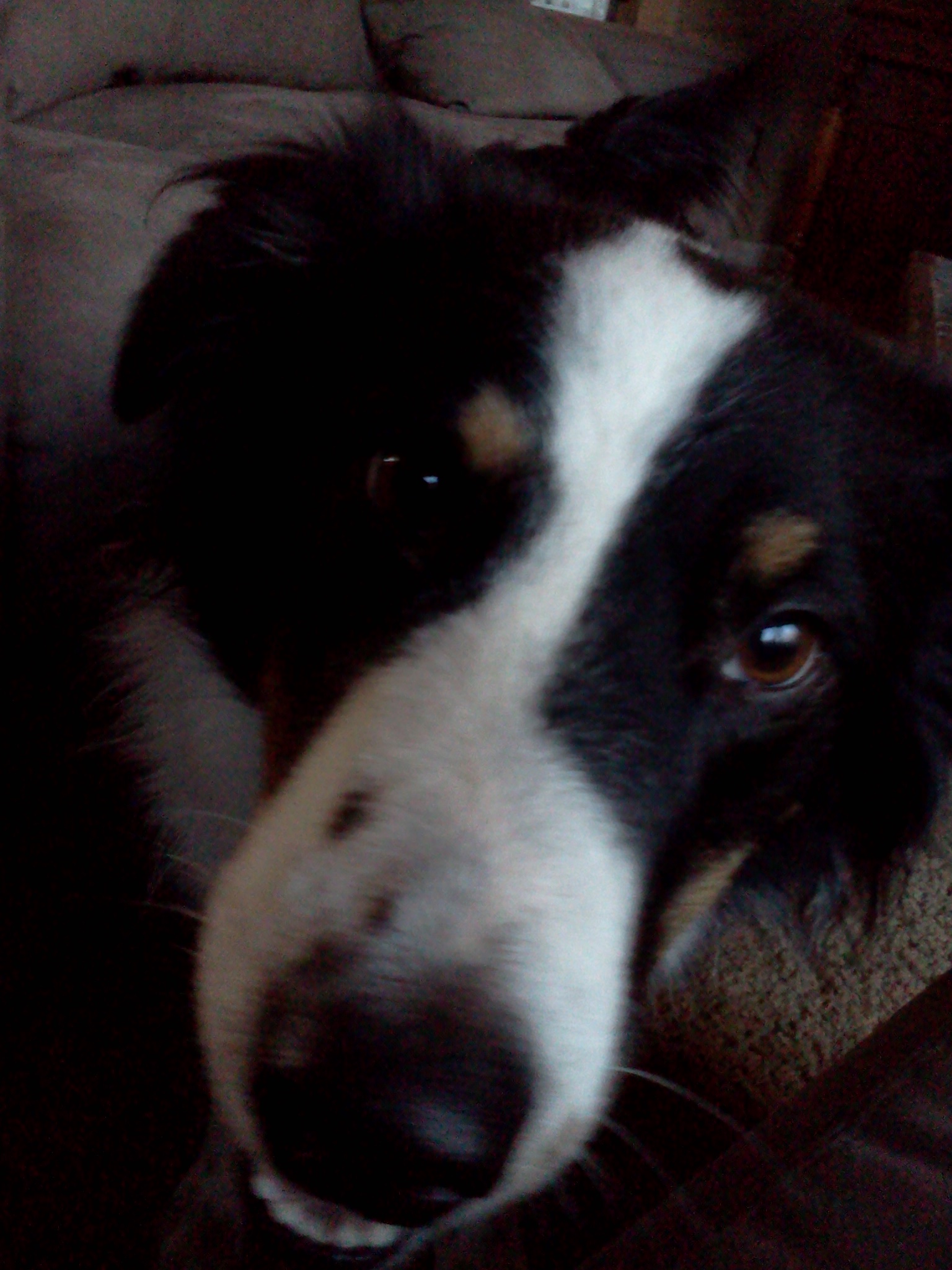Ziggy should have died at least six times before he finally expired last Friday at the age of 13 ½. And those are just the times I know about.
While his early years remain a mystery, there were enough clues to ascertain that they were not good. I don’t know why or how my Australian Shepherd-Border Collie mix ended up at the Humane Society, but I do know that elevated voices terrified him and sent him fleeing for cover. Men, especially bearded men with hats, were frightening. Anyone coming to the front door or any unexpected, rapid movement was a threat. That would have been bad enough, but Ziggy reacted to fear in one of two ways. He ran if he thought he could, and otherwise he bit.
Three different owners tried to give him a home. Ziggy kept biting almost every time he got scared, which was a lot. After my two friends who had initially adopted him couldn’t cope, I was determined to find him a home. By that point, I had dog-sat him enough times to know what a lovely pup he really was, but I already had three other dogs and felt that I could not take on a fourth. So Ziggy went to my handyman, Ron, who adored him but whose wife did not. Ron then passed him off to a friend with cows and working border collies, figuring that Ziggy could bite the cows. But Ziggy was not a working dog—he was a snuggle puss with an overwrought and likely well-deserved defense system. When the cattleman gave Ziggy back, Ron finally caved to his wife’s pressure and agreed to get rid of the dog she hated.
“We’ll be taking Ziggy to the Humane Society in the morning, and because he’s got a biting record, they’ll euthanize him on the spot,” Ron told me when he called.
I hung up the phone, crying. “I have to be okay with this. I have to be okay with this,” I told myself as I looked out at the creeping dusk. Five minutes later, I called Ron back. “I’m so not okay with this. I’m coming over to pick him up.”
By the time an autoimmune disease tried to kill Ziggy, he had turned into a happy member of my pack who lived to be petted, play ball or stick, swim, hang out with the canine love of his life, Bode (who years later would wind up predeceasing Ziggy by a single day), and enjoy whatever the next adventure had in store. On May 1, 2016, when I brought Ziggy to the emergency animal hospital with a nose bleed following days of testing after he had suddenly become painfully stiff to the point of rigidity, a blood test revealed that he had zero platelets. How he didn’t bleed to death, I’ll never know. When my closest friend, Leah, and I went into the hospital to say goodnight, knowing that it might be goodbye, we emerged covered in blood.
Somehow, he survived the weekend, and I was able to move him back to my regular vet. Ziggy, the rest the dogs and I spent that week camped out in the Bend Animal Hospital parking lot in my vintage RV, as the vets there tried to figure out how to save him. Ultimately, massive doses of prednisone and a blood transfusion from two healthy, young labs belonging to one of the vet techs turned Ziggy around. Despite all the effort, I’m not sure anyone there expected him to survive.
Over the next four years, Ziggy’s platelet count would drop dangerously low at least four more times, each episode requiring the massive steroid infusion that was so hard on his body. Even though he came close to dying each time, it was always hard to tell when Ziggy was crashing. He still wagged his tail. He still wanted to play ball. He still gazed deep into my eyes when being snuggled. And each time he veered toward the edge, he found the will to pull back and stay with us. Until he finally couldn’t.
The day he died, I knew he wasn’t feeling good. When I put him on my lap outside in the sun, he lay back and looked up at me, his gaze, despite cataracts, as penetrating as always and just as loving. I didn’t know then that his spleen had burst and that these would be our last hours together. But looking down on my lovely, beautiful boy, I realized that I would never have a better example of what you can accomplish, regardless of the odds, if you feel safe and have heart. That’s what it’s all about.
May you find safety and a lot of heart in your writing and all the rest of your endeavors.




















0 Comments